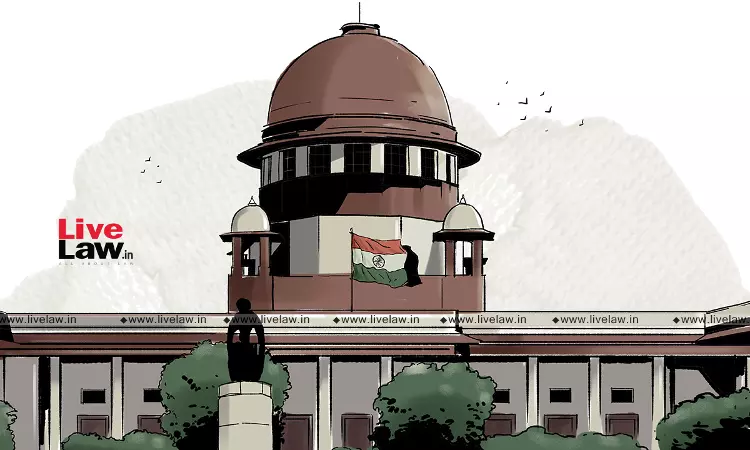- Home
- /
- Top Stories
- /
- Review Petition Filed Against...
Review Petition Filed Against Supreme Court's Mandate For 3-Year Practice To Enter Judicial Service
LIVELAW NEWS NETWORK
16 Jun 2025 1:16 PM IST
The petitioner, as an alternative prayer, sought the deferment of practice rule till 2027.
A review petition has been filed in the Supreme Court challenging its recent judgment, which mandated 3 year practice as an advocate for a candidate to apply for the entry posts in judicial service (post of Civil Judge-Junior Division).The petitioner, while arguing that the judgment suffered from apparent errors on record warranting a review, also prayed that the mandatory three-year...
A review petition has been filed in the Supreme Court challenging its recent judgment, which mandated 3 year practice as an advocate for a candidate to apply for the entry posts in judicial service (post of Civil Judge-Junior Division).
The petitioner, while arguing that the judgment suffered from apparent errors on record warranting a review, also prayed that the mandatory three-year practice rule should be implemented only from 2027 onwards to avoid unjust exclusion of recent graduates (2023–2025) who prepared under the previous eligibility criteria.
"Immediate enforcement causes retrospective hardship, violating principles of fairness, legitimate expectation, and equal opportunity under Article 14 of Indian Constitution," the petition submitted.
The review petition is filed against the judgment delivered by a bench comprising CJI BR Gavai, Justice AG Masih and Justice K Vinod Chandran in the All India Judges Association case on May 20.
Shetty Commission's recommendations ignored
Review petitioner Chandra Sen Yadav, a practising advocate, contended that the mandate for 3-year practice was imposed by the Supreme Court, ignoring certain crucial observations made by the Shetty Commission. The petitioner also submitted that the Court's direction was based solely on the affidavits filed by certain High Courts and State Governments who supported the reinstatement of the condition for legal practice before entering judicial service. However, the contrary recommendations made by the States of Nagaland, Tripura, the High Court of Punjab and Haryana, and the State of Chhattisgarh, which opposed the said requirement, were not wholly considered by the Court, the petitioner argued.
According to the review petitioner, the Shetty Commission recommended the removal of the practice requirement, considering the fact that court visits and internships are part of the curriculum of the law degree. This aspect has not been considered by the Supreme Court. Also, since the candidates undergo training before entering service, the practice condition may not be necessary.
Judgment not based on any factual data or statistics
It is also argued that the judgment did not cite any factual data, statistics, or studies to establish that fresh law graduates perform poorly as judges. Further, no consideration was given to the number or success rate of fresh law graduates who have historically performed well in judicial services and have served effectively on the bench after undergoing training. The petitioner thus argued that the judgment was not based on any solid material and was based solely on subjective, anecdotal perceptions.
"There was no comprehensive data placed before this Hon'ble Court to establish that fresh law graduates or candidates without three years of Bar experience are underperforming in judicial roles, nor was there any evaluation of the success or failure of earlier batches recruited without such requirement," the petition stated.
"The reliance placed by this Hon'ble Court in para 62 of its impugned judgment dated 20.05.2025 on the general views expressed by the learned amicus curiae and counsel for most of the High Courts to the effect that the time has come to review and restore the requirement of minimum practice is arbitrary and not grounded in any empirical study, objective criteria, or statistical evaluation of judicial performance."
Disproportionately affects marginalised groups
The petitioner further argued that the direction disproportionately impacts aspirants from economically weaker sections and socially disadvantaged communities, particularly SCs/STs/OBCs. Also, the three-year litigation practice requirement arbitrarily excludes law graduates working in law firms, PSUs, or corporate legal roles, despite their relevant legal experience.
It was argued that by imposing a uniform, binding eligibility condition upon all States and High Courts through a judicial order, without any legislative backing or consultative framework, the Supreme Court has assumed the role of a policy-maker, which is beyond the remit of Article 141.
As per the petitioner, the Court created a blanket disqualification of an entire class of law graduates without substantiating why every law graduate without three years of practice is deemed unfit. This results in the infringement of the right to choose a profession as per Article 19(1)(g) of the Constitution. Since the judgment is not based on any objective criteria, the restriction imposed is not reasonable and is arbitrary, the petitioner contended.
The petition has been filed through Kunal Yadav, Advocate-on-Record.
Another review petition raising similar arguments has been filed by Faguni Mittal through AoR Farhat Jahan Rahmani.



